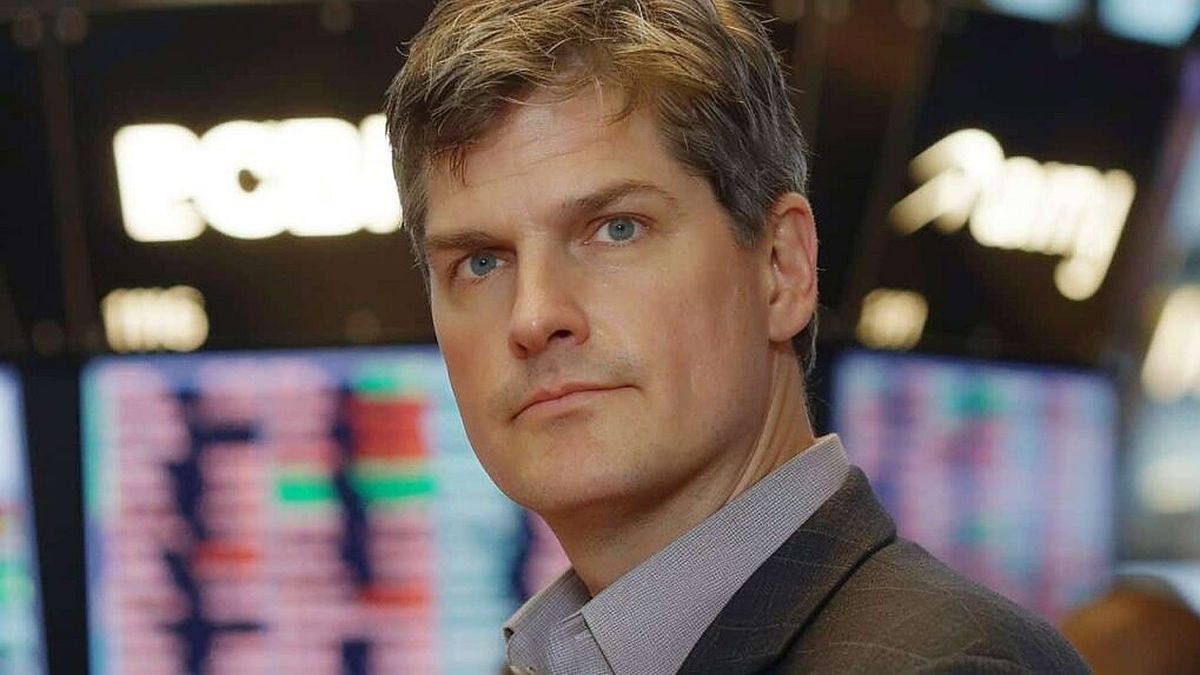For nine months, Hamburg banker Christian Olearius had to sit in the dock repeatedly and face accusations of massive tax fraud. That is now over.
Even without an acquittal, Hamburg banker Christian Olearius left the courtroom a free man. Since September, he had repeatedly had to sit in the dock at the Bonn Regional Court on charges of particularly serious tax evasion and tax losses of 280 million euros. Monday was his last day of the trial: Presiding Judge Marion Slota-Haaf issued a so-called dismissal judgment and justified this with the defendant’s poor health. He has various heart diseases and high blood pressure, and if the general meeting were to continue, “there would be a high probability of damage to his health,” including a heart attack.
The court had previously obtained an expert opinion, according to which Olearius should only be in the courtroom for a maximum of 45 minutes per day of the trial. With such a short time limit, the trial could drag on for another three years, said Judge Slota-Haaf. The court also noticed that Olearius had collapsed several times during the trial in recent months and seemed absent. “It can no longer be ruled out that the defendant attended part of the main trial so far while incapable of standing trial.” As a result, the evidence that has already been taken must be repeated, said Slota-Haaf. After weighing up the overall situation, the court came to the conclusion that the proceedings must be discontinued.
Olearius wanted acquittal
For Olearius, the fact that he could stop traveling to Bonn was actually good news – but the banker was probably not in a celebratory mood. He left the court unimpressed and without comment. His defense attorneys, including former CSU member of the Bundestag Peter Gauweiler, had tried to use a legal construct to obtain an acquittal despite the suspension.
They portrayed Olearius himself as a victim who had been publicly prejudged and whose right to a fair trial had been violated. The presiding judge, however, rejected this argument and made it clear that an acquittal was out of the question.
Shortly before the verdict, Olearius spoke again on Monday and, in just under ten minutes, once again asserted his innocence. He accused the public prosecutor’s office of making serious errors in its investigations and of falling for a key witness who had made false statements. “There is a great deal of evidence that proves my innocence,” said Olearius, pointing out that he and the co-partner of Warburg Bank had paid 230 million euros to the state – “knowing that we were innocent.”
No million dollar payment for now
Both the defense and the prosecution had requested that the case be discontinued in view of the defendant’s health. The prosecutors, however, wanted to obtain the confiscation of 43 million euros in a subsequent confiscation procedure – in other words, they wanted Olearius to be asked to pay up. In such a procedure, the only issue is the money and not the question of guilt, and Olearius would not have to appear in court in person. The court rejected this request last week, arguing that the prosecution had not yet completed its investigation of the facts – it should do this first before it could later apply for new confiscation proceedings.
Because of this rejection, the public prosecutor’s office filed an appeal immediately after the verdict. This means that the Federal Court of Justice (BGH) will have to deal with the matter. It is conceivable that the BGH will overturn the decision to discontinue proceedings and that the Bonn Regional Court will have to hear the case again in a new trial. But it would take some time until then. And the idea that Olearius will have to appear before the Bonn court again at some point, despite his health problems, is ultimately considered to be pure theory.
Confusion by financial players
In cum-ex transactions, financial actors received refunds of taxes that had not been paid – shares with (“cum”) and without (“ex”) dividend entitlement were pushed back and forth in a confusing game. The state had no overview of the situation and suffered double-digit billions in losses as a result. The peak of these transactions was between 2006 and 2011. In 2021, the Federal Court of Justice classified cum-ex as a criminal offense.
Since 2020, the Bonn Regional Court has already handed down eight guilty verdicts for tax fraud, and a large number of proceedings are likely to follow in the coming years. In the proceedings that have now been discontinued, the head of a financial institution had to face cum-ex allegations in court for the first time. Olearius was formerly head of the private bank MM Warburg and later its chairman of the supervisory board; he is now only a shareholder.
Connection to Scholz
Olearius is one of the best-known Cum-Ex actors. His actions also caused a stir in politics. His diary entries revealed that he had met with the future Chancellor Olaf Scholz (SPD) three times in 2016 and 2017, when he was still First Mayor of Hamburg. The exact content of the meetings is unclear. However, it is a fact that the tax authorities subsequently dropped a tax demand and the claims became statute-barred under the legal situation at the time. It has not been proven that there was a causal connection between the Scholz-Olearius meetings and the authorities’ decision. Scholz rules out any influence, but cites gaps in his memory when asked about the exact content of the discussions.
Source: Stern




